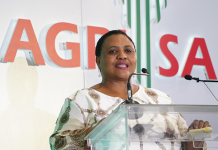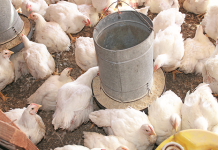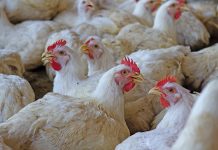I had a conversation with a female farmer from rural Limpopo the other day. It was an eye-opener – and a depressing one at that. As someone who lives in 21st century Gauteng, I had long assumed that most of the grosser forms of gender discrimination in the agricultural sector had disappeared, or at least been much diluted, in recent years. But after speaking to this Limpopo producer – let’s call her Palesa – I realised that my optimism was premature. It seems that female farmers in rural Limpopo and similar areas where traditional cultures are practised are still struggling against blatant prejudice.
Palesa’s remarks echoed the sentiments I heard several months ago at an Afasa youth and women’s conference. Delegates discussed sexism in land affairs and how this made it extremely difficult for women to gain access to land. I found it hard to believe what I was hearing, as I’ve met many female farmers whose businesses are doing very well. But I have to acknowledge that most of these are in Gauteng or semi-urban areas.
Listening to Palesa and the Afasa attendees, it’s clear that many rural men believe a woman’s role is simply to bear children and slave in the field or kitchen. Moreover, they are quite open about their prejudices, despite the country’s laws against gender discrimination. Particularly vulnerable are women who are unmarried, widowed or divorced.
According to Palesa, women in rural Limpopo are often excluded from government agricultural programmes such as Ilema/Letsema because the latter are overseen by kgosis. These chiefs are deeply traditional and sexist, and often refuse to include women in the programmes. In fact, it seems that the only way in which women can become beneficiaries is by belonging to small community projects.
Simply unfair
What makes this prejudice even more outrageous is the fact that there are far more women working the land than men. I have visited many farms and from my observations can safely say that more than 60% of the workforce in South Africa consists of women. According to some researchers, women in Africa are responsible for more than 80% of the continent’s food, yet they own 1% of the land!
In addition to growing food, huge numbers of these women bring up their families and run their households on their own. If they are not single, as mentioned, they are nonetheless alone because their husbands are employed in the cities. Despite achieving all this, they are excluded from access to land and natural resources purely due to sexism. This is not just unfair, it’s cruel. The very lives of these women and their families depend on access to natural resources.
Improving access to and control over land would enhance food security, and would surely reduce poverty in rural areas. This in turn, could help to stem the migrants to urban areas. People are flooding to cities not only because opportunities there are better, but because conditions in rural areas are intolerably bad. And one reason for this is blatant discrimination – against the very people who are producing the food!












